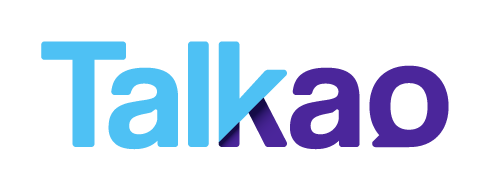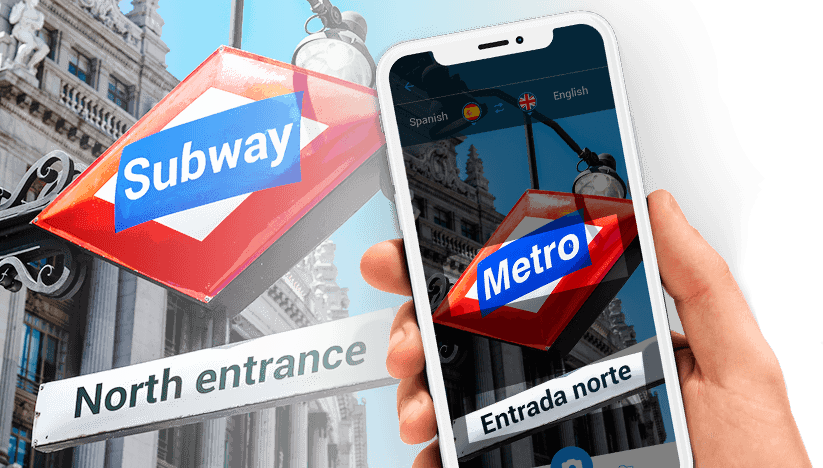
In episode five of the Talkao Podcasts, we explore the importance of learning German. We approach the learning process of this essential modern language from a practical perspective. In other words, we’ll highlight the professional and business advantages of speaking German. But beyond that, we’ll show you how learning German can play a crucial role in your personal and cultural growth. Along the way, we’ll take a brief look at German culture and its profound influence on the modern world.
Of course, no discussion would be complete without addressing the main challenges, linguistic peculiarities, and complexities of learning German—especially for Spanish speakers or those whose native language is a Romance language.
Finally, we’ll share expert tips from our language specialist on how to boost your language learning skills.
In this episode of Talkao Podcasts, our teacher will guide you through the best methods for learning German, showing you how to make your study sessions more dynamic, enjoyable, and effective using AI-powered predictive translation tools.
So, without further ado, fasten your seatbelt—you’re about to embark on a fascinating journey…
Lasst uns Deutsch lernen!
Let’s learn German!
Why learn German? What are the advantages of mastering this language?
There is little doubt about the benefits of learning German in your life. It’s the language of one of the richest and most influential cultures in the modern world. However, we rarely think of German as a language that can open doors you may not have even considered yet. From boosting your professional profile to enriching your personal and cultural life, learning German offers unique opportunities that can transform your future.
In Episode 5 of the Talkao Podcasts, you’ll discover why German is one of the most valuable foreign languages you can learn today. You’ll also see how, with the help of technology, learning German can be much simpler than you think. We’ll explore its professional advantages and its positive impact on your personal growth. If you’re looking for a reason to start learning German, here you’ll find more than one. Let’s take a closer look.
Germany: A global economic and cultural powerhouse
There’s no denying it: Germany is the largest economy in Europe and one of the strongest in the world. German is the official language of Germany, Austria, Switzerland, Luxembourg, and Liechtenstein. It is spoken by over 100 million native speakers, plus a large number of second-language speakers in Eastern Europe and beyond.
Mastering German opens the door to key industries such as automotive, engineering, technology, medicine, and science. International German companies highly value professionals who can communicate in their native language. If you want to work with or for these companies, learning German is almost essential.
Career opportunities you shouldn’t miss
If you’re aiming to advance your career, German is a skill that will make your résumé stand out. Some of the top career benefits of learning German include:
- Access to multinational companies: Not only German corporations but also many international firms have their European headquarters in Germany.
- Better working conditions: German-speaking countries are known for high salaries, excellent quality of life, and job stability.
- Demand for technical professionals: Germany’s technology and science industries need skilled professionals with German language proficiency.
- Opportunities for international mobility: Speaking German makes it easier to access expat programs, scholarships, and international cooperation agreements.
If your goal is to work in Europe, relying on English alone won’t set you apart from other candidates. This is where German becomes a key differentiator in your professional profile.

Personal growth through language learning
Beyond professional goals, learning German is an intellectual challenge that stimulates your brain. This language features a structured grammar, precise pronunciation, and a vast vocabulary, requiring continuous mental training.
Additionally, learning German boosts your concentration, memory, and analytical skills. Like any language learning process, German helps you to:
- Develop empathy by stepping into the shoes of other speakers.
- Increase your cultural tolerance.
- Strengthen your discipline and perseverance as you build new skills.
The learning journey transforms you, making you a more flexible, creative, and open-minded person, ready to embrace new challenges.
Immerse yourself in a fascinating culture
Language and culture are inseparable. When you learn German, you gain access to one of the richest cultural traditions in the Western world. Think of authors like Goethe, Schiller, Kafka, or Thomas Mann. Listen to composers such as Beethoven, Bach, or Mozart. Dive into the ideas of Kant, Nietzsche, and Freud.
Modern German cinema, its diverse cuisine, and unique regional traditions offer a complete cultural experience. Mastering the language allows you to enjoy these artistic and cultural expressions in their original form—something that always provides a deeper and more enriching perspective, especially when combined with precise AI translation technologies.
Academic advantages
Did you know that Germany is one of the most generous countries in offering scholarships to international students? By learning German, you can access educational programs and university degrees with low tuition fees, or even free education. Many world-renowned German universities offer highly respected master’s and doctoral programs.
German scientific research leads the way in fields such as biotechnology, mechanical engineering, environmental sciences, and computer science. If you’re looking to pursue an academic or scientific career, German is a key that opens countless doors.
Is German hard to learn?
You’ve probably asked yourself if German is a difficult language for Spanish speakers. And it’s a valid question—German has a reputation for being complicated. But is it really that hard? The answer depends on how you approach learning it and the tools you use. In Episode 5 of the Talkao Podcasts, our expert explains the most common challenges.
But she’ll also outline the main differences between German and Spanish, as well as some effective learning methods. You’ll learn how to approach German with confidence, and most importantly, achieve great results. Don’t start learning German without first following these key tips.
A language known for its complexity
German is one of Europe’s most important languages. But it also generates a lot of doubts among new learners. Many Spanish speakers think German is an inaccessible language, full of complex rules, long words, and impossible pronunciation. However, this perception isn’t entirely accurate.
As you’ll discover in Episode 5 of the Talkao Podcasts, German—like any language—has its difficulties. But it also has logical structures and key elements. There are small “tricks” that, if you learn them properly, can make your learning process much easier. Especially when you start using AI-powered predictive translation tools.
Why do Spanish speakers find German challenging?
When you learn German as a Spanish speaker, there are some clear challenges. But these challenges are less about the language being difficult itself, and more about the structural and cultural differences between Spanish and German. Let’s look at a few examples:
Complex and different grammar
One of the biggest challenges is grammar. German uses four grammatical cases (nominative, accusative, dative, and genitive), something that doesn’t exist in Spanish. In addition, nouns have genders (masculine, feminine, or neuter)—but these are less intuitive than in Spanish.
Verbs and word order
In German, the main verb often appears at the end of subordinate clauses. This breaks the logical word order that Spanish speakers are used to, making it confusing at first.
Pronunciation and new vocabulary
German includes guttural sounds and long or short vowels that don’t exist in Spanish, making pronunciation tricky. Plus, many German words have no lexical similarities to Spanish, meaning you’ll have to build your vocabulary from scratch.
Compound words
Finally, German is famous for its long compound words. While they make sense once you understand them, at first they can seem overwhelming.
Key structural differences between German and Spanish
When you start learning German, one of the first things you’ll notice is the different grammatical and syntactical structure. These differences aren’t impossible to overcome, but they do require conscious adaptation.
The case system
Spanish mainly uses word order to express grammatical relationships. German, however, uses cases, which affect articles, pronouns, and adjectives. This means you’ll need to learn several forms of a word, depending on its role in the sentence.
The verb at the end
In subordinate clauses, the main verb typically goes at the end. For example:
“I think it will rain tomorrow” becomes in German: Ich glaube, dass es morgen regnen wird.
This difference forces you to mentally reorganize sentence structures, something that takes practice. In Talkao’s German lessons, you’ll practice building these sentences naturally.
Less predictable grammatical genders
In Spanish, noun gender is often clear from the word ending (-o for masculine, -a for feminine). In German, this isn’t the case. For example, “das Mädchen” (the girl) is neuter, not feminine. You’ll need to memorize the gender of each noun.
Compound word formation
German combines concepts into a single word, forming very long terms. While this increases the language’s precision, it can make reading comprehension harder at first if you’re not used to it.

Effective methods to learn German from scratch and leverage AI-Powered technology
Learning German may seem like a challenge, but with the right methods, you can make steady and effective progress. The key is to choose resources tailored to your needs and maintain consistent daily practice.
Structured classes with native or bilingual teachers
Whether in-person or online, structured classes provide a solid foundation in grammar, vocabulary, and pronunciation. An experienced teacher will guide you through the correct use of grammatical cases and sentence structure, helping you avoid common mistakes from the start.
Active listening and constant exposure
Watching series, listening to podcasts like Talkao Podcasts, and reading news in German will help you become familiar with the structure and natural rhythm of the language. Even if you don’t understand everything at first, this continuous exposure sharpens your ear and boosts your fluency.
Real conversational practice
Participating in language exchanges or online communities where you can speak with native speakers is essential. This will help you overcome the fear of speaking and reinforce what you’ve learned in class.
AI-Powered predictive translation technology from Talkao
Today, learning German isn’t necessarily easier—but it’s definitely more versatile. The precision of modern machine translation gives you a wide range of tools to improve your skills. Many of these are available through the Talkao apps, which you can download and use on any mobile device. With these tools, you’ll be able to:
Improve your pronunciation and listening skills
With AI-powered predictive translation apps like Talkao Translate, you can:
- Perfect your pronunciation by listening to yourself and repeating key sounds
- Understand audio and conversations with greater clarity
- Recognize regional accents and variations
- Build a broader vocabulary with synonyms and related words
- Accurate Real-Time Translation for Instant Learning
Enhance your reading comprehension and writing accuracy
Talkao’s automatic text translation precision tools allow you to:
- Read more easily by translating from German to your native language
- Understand long-form content such as books, documents, and technical materials
- Improve your grammar and spelling
- Translate without transcribing, even from images, handwritten notes, and other formats
Watch videos and multimedia content like Talkao Podcasts
With the real-time streaming translation feature, you can seamlessly translate from German to Spanish and vice versa. This function allows you to:
- Follow live classes without losing context due to translation delays
- Watch videos, movies, and multimedia content with accurate automatic translations
- Enjoy podcasts—such as Talkao Podcasts—and social media content without missing a word
German is within your reach
With today’s technology, AI, and modern learning resources, learning German is more accessible than ever.
Follow Talkao’s channel and discover fascinating language content.
Learn languages, explore essential learning tips, and find out the most effective methods to master German today.










Newsletter